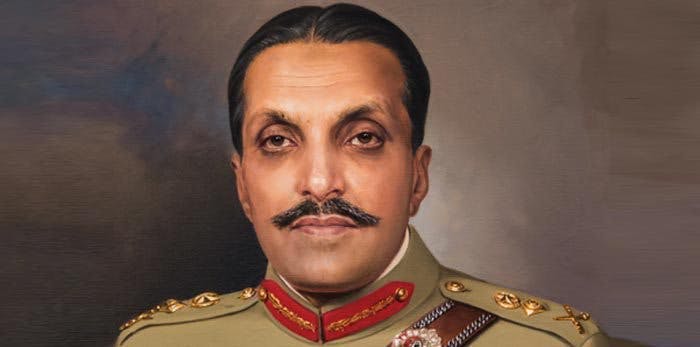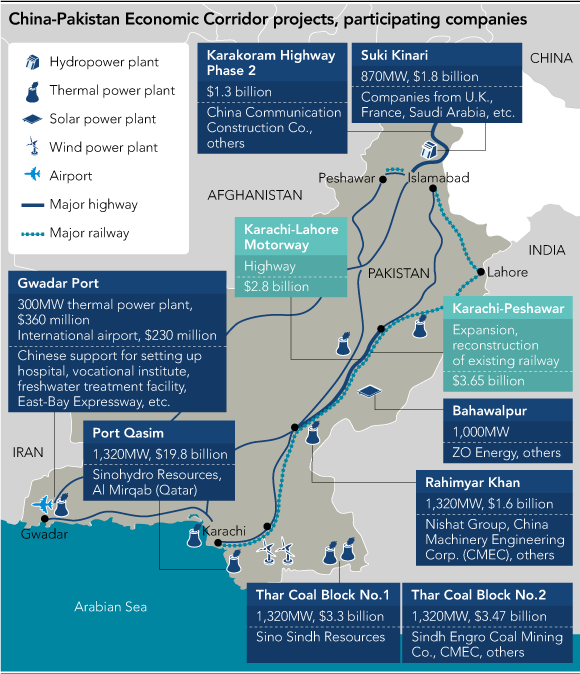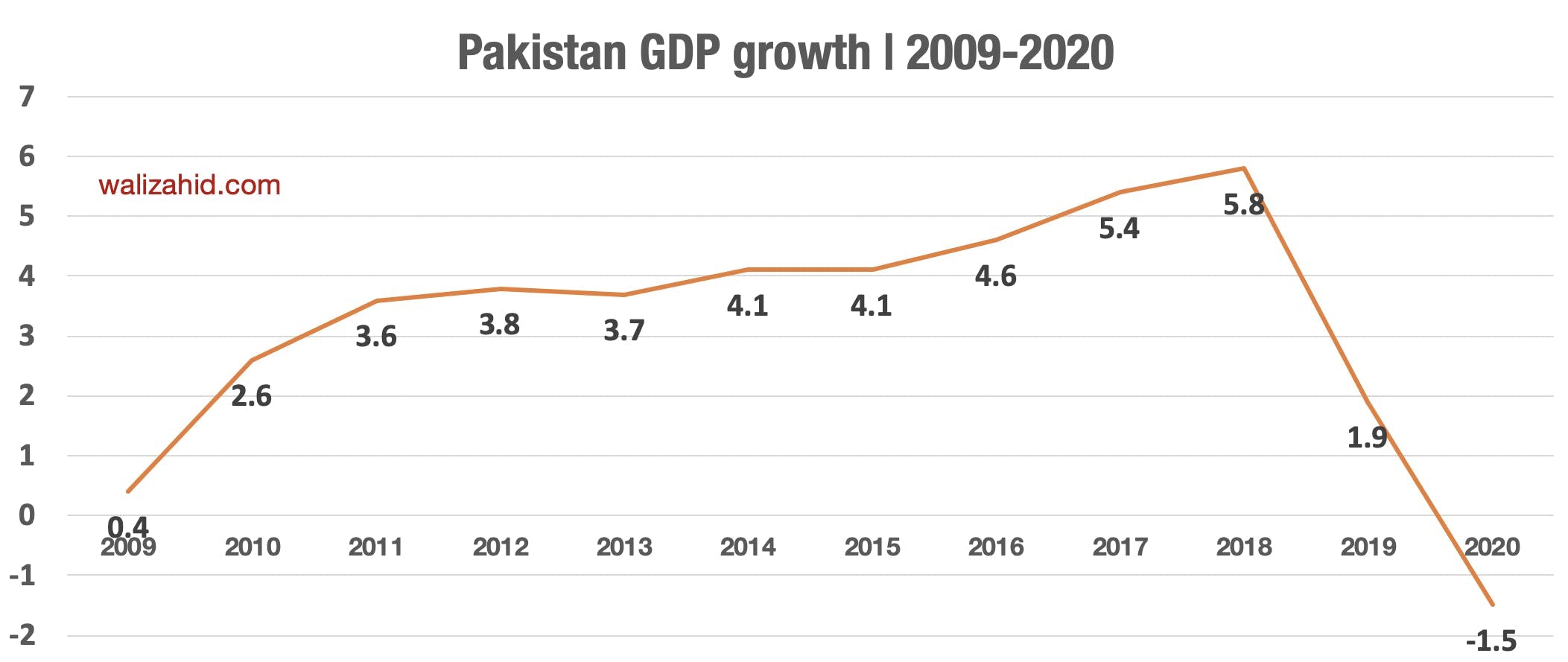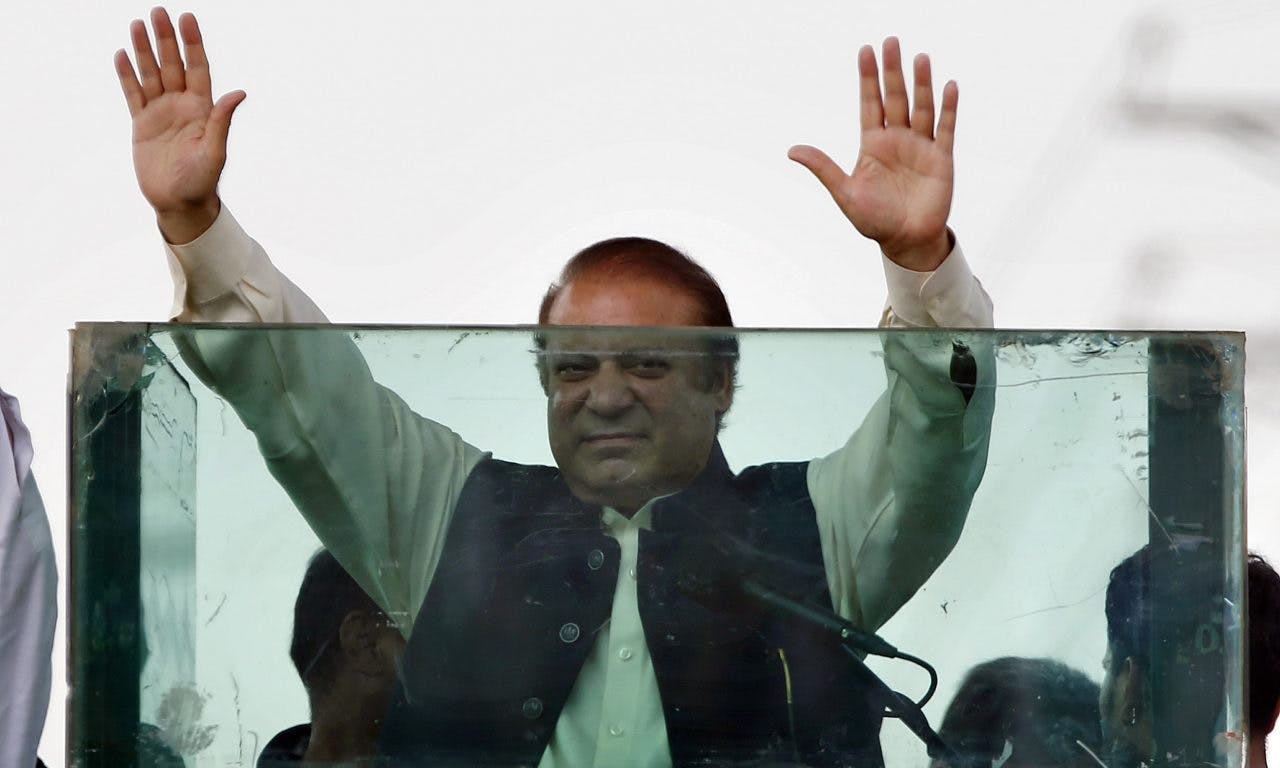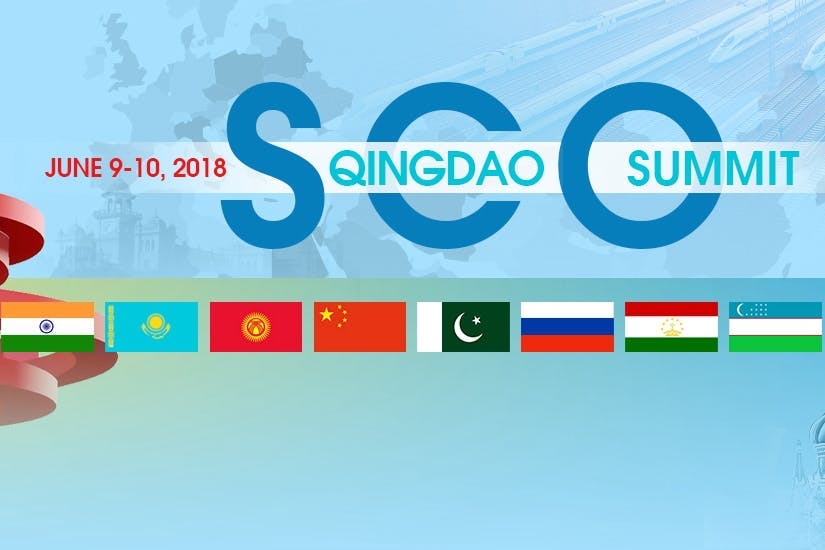Will Nawaz survive this October? A backgrounder
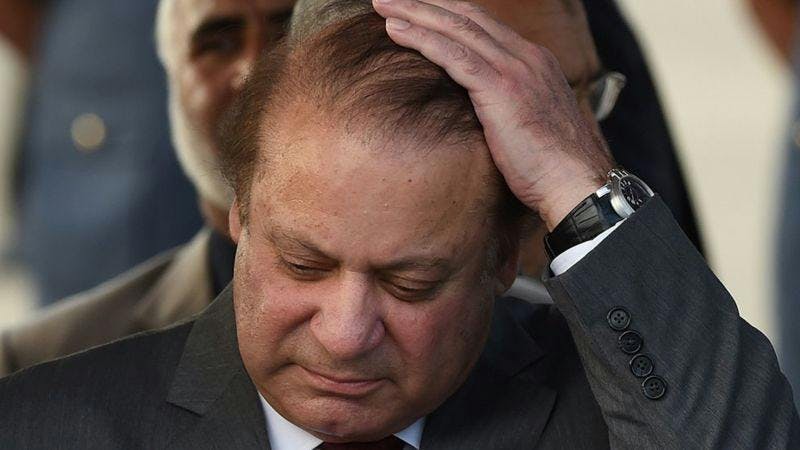
A backgrounder by Wali Zahid | 12 October 2016
The month of October in 1999 and in 2016 appear to be no different for Prime Minister Nawaz Sharif. Largely.
In 1999, General Pervez Musharraf, then just-terminated army chief and Chairman of the Joint Chiefs, plotted a coup, removed Nawaz Sharif in a humiliating manner and became Chief Executive of the country.
It was a power struggle then.
In 2016, 30 October (or revised to 2 November) is being considered a day when Sharif is likely to face a similar challenge, but in a different facade.
It is a power struggle now.
It may not be a coup this time. So, what could it be?
1. Could it be a Minus-One Formula finally bearing fruit: demanding Sharif’s resignation through Islamabad lockdown by Imran Khan’s PTI et al (called Dharna 2) on the ruse of Panama Papers and a resultant law and order situation, possibly bloodied if Sharif resisted, or bloodless if he gave in peacefully?
2. Or, could it be through a potential judicial commission set up by Supreme Court on the TORs drafted by the court itself if not agreed by the government and opposition parties?
1 November 2016 update: PTI postpones ‘lockdown’, to instead celebrate ‘Thanksgiving’ day after the Supreme Court agrees to form Panama Commission in an interim order, with hearing adjourned to 3 November.
3. Or, could it be a relaunch of Imran Khan or another character in a few weeks’ time?
4. Or, the Dawn Leaks scandal permitting, could it be business as usual?
28 July 2017 update: Option 2 was used. Nawaz Sharif disqualified by Supreme Court for not declaring the UAE income.
See also: Nawaz Sharif takes his case to masses
Some insightful pieces:
Imran Khan’s second assault | Zahid Hussain | Dawn
Turbulence in Pakistan: the same old story of Sharif vs. Establishment | Raza Rumi
Storm in a teacup? | Abbas Nasir | Dawn
Too clever by half | Najam Sethi | The Friday Times
On a knife edge | Cyril Almeida | Dawn
The 2014 PTI dharna – then against alleged electoral rigging – did not succeed.
In my 2014 piece on ‘Pakistan of future’ for Independence Day edition of The News, I wrote this:
Goldman Sachs forecasts get yearly revisions and our ranking may keep on moving down a point or two if our governments fail in doing their job, or the forces of disruption become too huge to manage (as I write this on 6 August, I am anxious about the 14th August Azadi march by the opposition Pakistan Tehreek-e-Insaf and its intended consequences). Intended in italics.
See also by Wali in Express Tribune:
A backgrounder
Sharif was originally identified and groomed by army by then Governor Lt-General Ghulam Gilani at the behest of President General Ziaul Haq as a rising urban force against Punjab’s dominant feudal factor in politics.
Sharif first became the Finance Minister in Punjab in 1981 and then the Chief Minister of Punjab in 1985.
See also: Did General Ziaul Haq know his end was near?
Sharif and army’s paths separated when after the 1990 electoral win by IJI led by Sharif, the then army chief General Mirza Aslam Beg and President Ghulam Ishaq Khan wanted to make Ghulam Mustafa Jatoi the Prime Minister who was interim PM at the time, and not Sharif, which was the original promise.
The differences grew further when the army-backed President Ghulam Ishaq Khan appointed General Abdul Waheed Kakar as chief of army staff in 1993 against Sharif’s will. General Kakar later forced the resignations of both President Ishaq Khan and PM Sharif.
Since then, Sharif has been out of army’s favour, and a target of Minus-One. Sharif’s lost distrust on army has never been repaired.
Sharif’s first government (1990-93) was dismissed by President Ghulam Ishaq Khan in 1993.
And it’s nothing but amazement at God’s doing that Sharif returned to power second time after a landslide electoral win in 1997 and again in 2013 (after being exiled and humiliated by General Musharraf), becoming an unprecedented third-time Prime Minister of Pakistan.
If Sharif is able to come out of current October/November crisis, he could be on his way to become the most powerful fourth-time Prime Minister – which could be an unprecedented event in the country’s history.
Only after a year in office after Sharif refused to share commercial space with army, in 2014, PTI’s Imran Khan and Awami Tehreek’s Dr Tahirul Qadri, a fiery cleric – once imam at the Sharif mosque and now based in Canada – were launched in Islamabad to dislodge Sharif.
Imran Khan would often refer to a third umpire (reference to army chief) and his finger to be lifted, but army and ISI deny they were behind dharna.
During the 2014 dharna, there did come a moment when the Sharif government could have been sent home when just at that very moment, PTI’s then President Javed Hashmi leaked the inside story of dharna and the London Plan and the 'Removal NS' mission was aborted.
Some Octobers in Nawaz Sharif’s life
October 1994: Sharif leads labour and industrial strikes throughout country against Benazir Bhutto leading to Bhutto’s departure two Octobers later
October 1996: Benazir Bhutto’s second government removed by President Farooq Leghari paving the way for Sharif’s return
October 1998: Sharif forces the army chief General Jehangir Karamat to resign
October 1998: Sharif promotes Lt-General Pervez Musharraf and appoints him army chief, later Chairman of the Joint Chiefs, paving the way for Musharraf to wage Kargil War without notifying Sharif (see ISI chief Asad Durrani’s confession) and overthrow Sharif an October later
12 October 1999: Sharif removes army chief General Pervez Musharraf for Kargil fiasco, and appoints General Ziauddin Butt as army chief
12 October 1999: The just-terminated General Pervez Musharraf removes Sharif government in a coup
October 2002: Imran Khan (born 5 October) elected MNA from Mianwali
October 2011: Imran Khan gets an ISI launch in Lahore with 100,000 supporters ahead of 2013 general elections
October 2013: Sharif visits Washington DC and meets US President Barack Obama
30 October 2016 (2 November): Islamabad lockdown postponed to Thanksgiving after Supreme Court agrees to form Panama Commission
Sharif, however, had to leave significant space – mostly commercial, national security and foreign policy (particularly on India and Afghanistan) – to army. Since then, his government has been off balance with the army.
A new bone of contention is CPEC. Since the US money supplies from Coalition Support Fund (CSF) are nearly over and the US Congress did not allow $300 million military aid this year unless action against Haqqani network was taken, army wants control of the $46 billion CPEC (China-Pakistan Economic Corridor) as well.
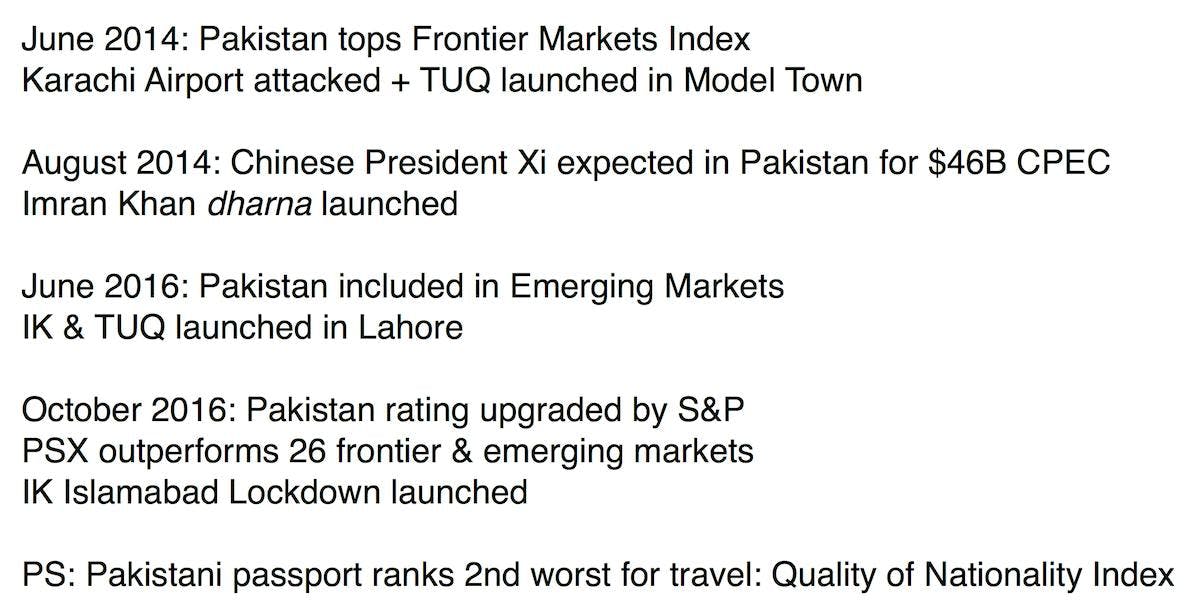
Above: Some engineered movements and their timing with country’s economic ratings.
There were indications that Sharif will get some of this lost space back after General Raheel Sharif retires on 29 November and a new army chief of Nawaz’s liking is appointed.
But the powers that be may have other plans, hence the hurried 2 November Islamabad lockdown.
Something else happened in October.
All hell broke loose with Dawn Op-Ed writer Cyril Almeida breaking the story on 6 October that civilians told the military to take action against non-state actors. The story might have been ignored but Cyril’s name was placed on ECL. This made global headlines and resulted in 1.6k RTs of the original story.
The travel ban was later lifted and Cyril left for the USA.
An inquiry was ordered.
Information Minister Pervaiz Rashid had to resign till completion of the inquiry.
Dawn journalist Cyril Almeida writes: The oldest of scripts is back. If Raheel doesn’t believe Nawaz can be convinced to return to his box, the dogs of protest may be unleashed in the streets and hawkish Sharif loyalists hacked away quickly. And if that doesn’t prove enough, the ultimate script is already written.
Flashback: Just after General Pervez Musharraf overthrew Prime Minister Nawaz Sharif on 12 October 1999, a Pakistani magazine, Pakistan Calling, published a cover story – Halt! About Turn.
For the cover story, they interviewed several overseas Pakistanis. At that time, I was head of marketing communications at Muslim Aid, UK’s relief and development charity, in their North London head office.
Pakistan Calling was a magazine published by the organisation that is now called PILDAT, based in Islamabad. You may have heard of PILDAT surveys on Pakistan’s governance performance.
The cover story was quite a damning account of Sharif’s tenure and like most in-country Pakistanis reportedly ‘distributing sweets’ on Sharif’s removal, overseas Pakistanis expressed their happiness that Musharraf took over.

Then there was this one lone voice: of me, saying this should not have happened. Have a look at screen shot image, above. Or, you can download the full article (2MB), below:
October-November 1999 issue of Pakistan Calling
As a trends-picker and futurist, most of the time, I have been able to forecast the outcomes but 2 November has so many variables and long-term game plan, it’s difficult to make a call.
All sides have kept their cards close to their chests in this high-stakes game.
However, during the 2014 dharna, I could forecast. Two tweets then:
Was I the only one optimistic that NS govt won't go by PTI/PAT dharna? Some of my tweets before, during and after pic.twitter.com/HkEYNkpPri
— Wali Zahid (@walizahid) August 13, 2015
July 2014: A politician who attended #LondonPlan meetings w #TUQ, long b4 #PTI #dharna, predicted govt will end. 1/3 pic.twitter.com/MPQ38SjYMU
— Wali Zahid (@walizahid) June 8, 2015
Wali Zahid is an award-winning journalist, futurist, disruptor, blogger, social media strategist, reformer, LinkedIn writer and author of iBook, Great Training in 10 Steps.
He runs a #Pakistan2050 hashtag on Twitter and appears on national TV on issues of significance to Pakistan.
On walizahid.com, he’s writing a series called How We Messed Up Pakistan.
Wali recently gave a keynote at the Managing Megacity Karachi conference by George Mason University USA at University of Karachi, supported by US State Department.
Twitter @walizahid
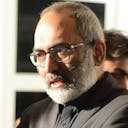
Wali Zahid
Wali Zahid is a longtime China watcher and a Pakistan futurist. An award-winning journalist, he writes on issues of significance to Pakistan and CPEC & BRI.
Related posts

